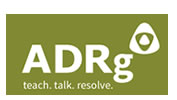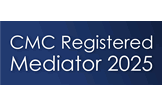
All About People
Need help to resolve your business, personal or employee conflicts & disputes?
Stay up to date with our latest news and workshops.

Conflict is where two or more people disagree with each other and is usually caused by triggers such as poor communication, personality differences, unequal distribution of power or responsibility, environmental factors, time management issues, and performance expectations. Most people who disagree with another person or become unhappy with a situation will react according to their own personality type, background, and beliefs.
Unresolved conflicts are not conducive to a happy workplace and workforce. They make others feel uncomfortable, and frequently can escalate into a bigger, damaging, scenario.
Think about it for a moment. How would you feel if you fell out with a colleague or manager, or if you were treated unfairly or feel discriminated against? It can make you feel anxious even to imagine!
As conflict is often perceived as a threat by the brain, it prepares the body for an emergency response, releasing stress hormones, and beginning the classic fight, flight, or freeze response. Not only does this stimulate physiological effects, such as increased heart rate or sweaty palms, it also impairs the ability to think clearly and rationally - hence why those in conflict often lose control, let emotions take over and say things they may later regret. Thoughts can turn negative, and the situation becomes binary: victim or bully, right and wrong, my fault or yours.
The rapid pace of change, heavy workload, and lack of job security are just a few examples of environmental stressors that can lead to workplace tensions.
Whether you are used to conflicts and disagreements or not, conflict in the workplace can lead to increased stress, anxiety, burnout, poor mental health, reduced performance and innovation, as well as higher employee turnover. It can also have a damaging effect on the overall morale and cohesion of a team., in turn having a negative impact on the businesses’ overall operation, service and productivity levels.
A 2019 survey by Consensio found that more than eight in 10 (84%) reported that workplace conflict had affected their overall health. Specifically, 75% said it had affected their mental health, 65% their physical wellbeing, and 25% had to take time off work because of the negative impact it had on them.
More recently, the Workforce State of Mind Report 2024 found that less than a quarter of employees report they were able to simply move on after a major issue at work – meaning that work issues caused a disruption in productivity at best, and caused an employee to quit, at worst, and that mental health leaves of absences are increasing according to 49% of HR leaders.
Conflict in the workplace can be complex, but some steps can be taken to address it and in turn, improve you and your workers’ mental well-being.
1. Remember that your perspective is just one of many
We all come to the workplace with different viewpoints, emotions and values. We might disagree on a broad range of issues from how you conduct yourself in meetings or timekeeping, to the appropriate consequences for someone who’s made a mistake. Therefore, it is essential to proactively seek common ground in order to address and resolve the conflict, and compromise must inevitably form part of this strategy.
2. Communicate respectfully and assertively
Communication is key to resolving any conflict, disagreement or argument, and workplace issues are no exception. Such communication should be honest, clear and inclusive. It must be grounded in emotional intelligence and acknowledge the feelings of all parties, and strive to ensure all parties understand and recognise others feelings and opinions.
3. Know your end goal
The desired outcome of the conflict is vital to its resolution, so it the focus for how the issue is discussed and explored has to look forward to this end goal rather than dwell on reviewing evidence of what occurred, what was right and what was wrong. Set objectives and communicate the goal clearly and comprehensively to everyone knows what to strive towards. Expect and accept flexibility throughout this journey. Approaching resolution with agility and open mind will maximise solutions and aims being achieved.
4. Have meaningful conversations – openness and trust
Don’t just manage conflict – use it. Not all conflict is bad; it can be a driver for innovation and creativity and help to highlight deeper issues that need addressing, particularly around diversity and fairness
5. Seek help when needed
Without the skills and confidence to manage conflict constructively, it is easy to avoid dealing with issues. This, in turn, means that conflict management skills aren’t practiced, leading to a self-perpetuating circle. Working with a third party, particularly a specialist conflict coach, helps improve conflict resilience and encourage informal conversations which are they key to resolving conflict quickly and avoiding it escalating.

Strategic Advice and Guidance for you and your organisation. Our accreditations:




Stay up to date with our latest news and workshops.